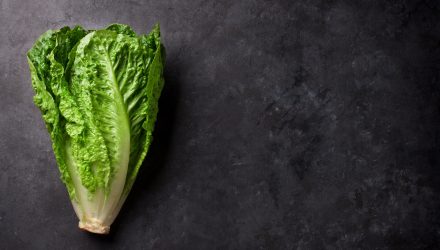ROBO Global Index member John Bean Technologies (JBT) is a leader in continuous cold processing—a method that is helping ensure food safety within the fast-growing super-premium juice market. In continuous cold processing (or raw processing), fruits and vegetables are fed constantly into the production line to supply a continuous stream of juice for blending, filling, and high-pressure processing. JBT’s unique process enables ‘Clean in Place’ (CIP) systems that are used by many food manufacturers to wash and sterilize equipment. At the same time, it eliminates the need to disassemble and clean each line, either when a new raw material is introduced for processing or at the end of the day. Continuous cold processing significantly improves food safety for consumers, while also reducing downtime, cutting costs, and increasing margins for the manufacturer.
ROBO Global Index member Krones AG offers customized process technologies for breweries, beverage bottlers, and food producers all over the world—all of which are designed to support food safety. The company’s aseptic system uses a hydrogen-peroxide-based sterilization process to fill bottles germ-free. And because the automated system doesn’t use a single drop of liquid throughout the entire production process, it significantly enhances microbiological safety.
GEA Group, another ROBO Index member, has a wide range of experience in product sterilization by direct-steam injection. A leader in providing end-to-end solutions to dairy farmers with milk collection and storage, its computer-controlled milking solutions simplify the process of maintaining a clean, hygienic environment to deliver the highest milk quality. GEA also designs, engineers, and supplies complete plants, processing lines, and equipment for treating raw milk that is designed to meet strict hygiene and food safety standards.
Distribution
If, despite the latest technologies to prevent a food-borne illness from reaching a consumer’s table, an outbreak does occur, RAAI is again at the ready to help protect us. Following the highly publicized E. coli outbreak that was linked to restaurant chain Chipotle in late 2015 and early 2016, investigators used whole genome sequencing (WGS) to quickly identify the DNA fingerprint of the STEC O26 bacteria that caused the outbreak and to trace its origins.
NGS, or next-generation sequencing, from companies like ROBO Global Index member Illumina, takes this capability even further, enabling scientists to learn the complete microbial makeup of any sample, providing even greater traceability. In contrast to WGS, which looks at the entire genome, NGS looks at multiple genetic markers. When used in conjunction with AI and machine learning, this method can be used to do everything from screen for food-borne pathogens to accurately predict the safe shelf life of a particular crop. For small genomes, DNA libraries can be prepared, sequenced, and analyzed in as little as 2 days.
There’s no doubt that keeping our food supply chain safe should be one of our highest priorities—for the food producers, consumers, and the FDA. But while RAAI can already deliver the solutions needed to make this happen, adoption has not been as rapid as it should be. That fact could present an opportunity for investors. A recent study by the Packaging Machinery Manufacturing Institute found that 9 out of 10 processing and packaging companies are using robots and AI to improve food safety. Yet recent outbreaks have indicated that that effort isn’t enough—by a long shot. Companies at every point in the supply chain are under massive consumer pressure to improve food safety, and the only real way to achieve that goal is to apply robotics, automation as AI. The shift toward RAAI is already in motion, and to keep us all safe from E. coli and other food-borne threats in the future, it seems the only possible trajectory for adoption is up.
For more investment strategies, visit ETF Trends.
